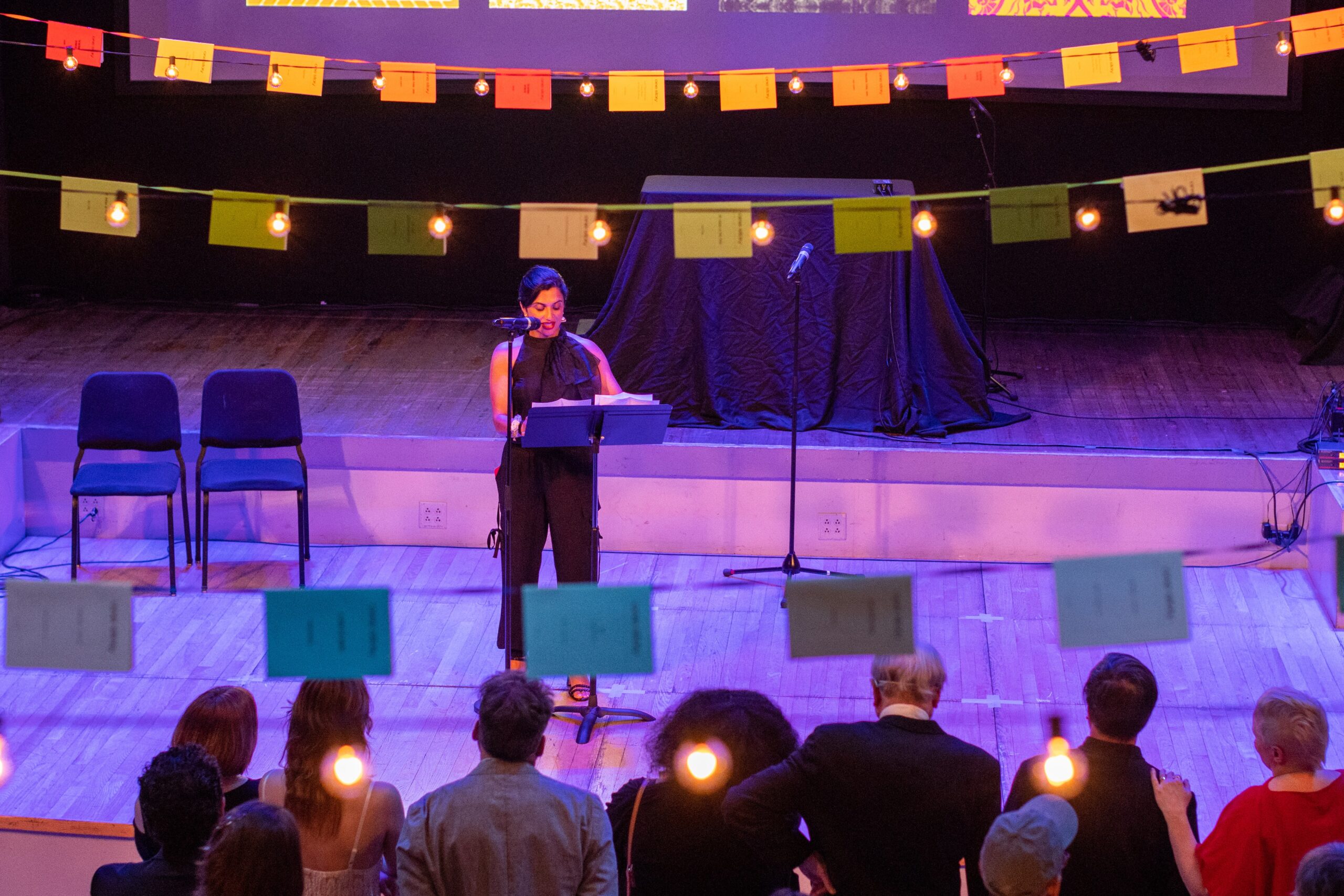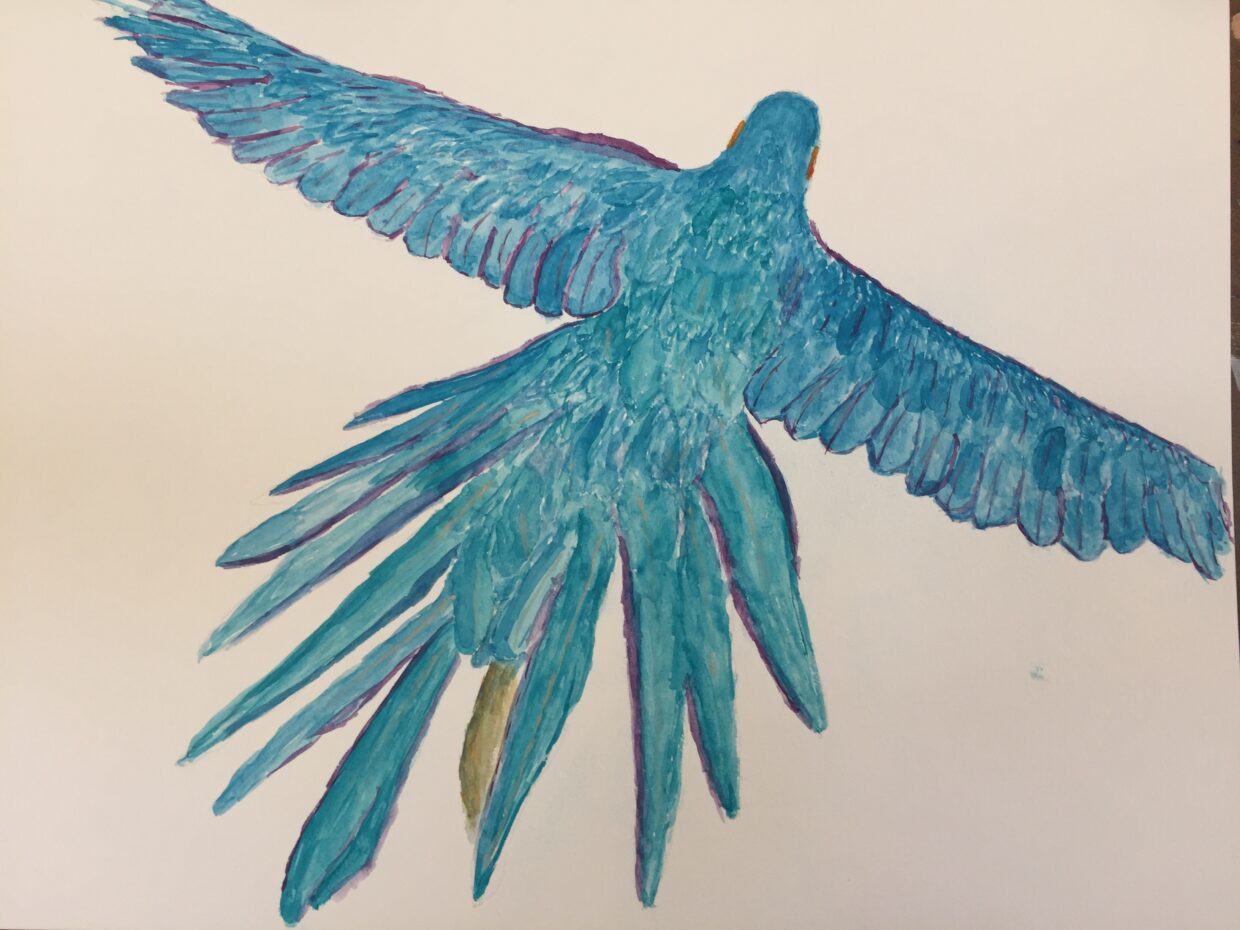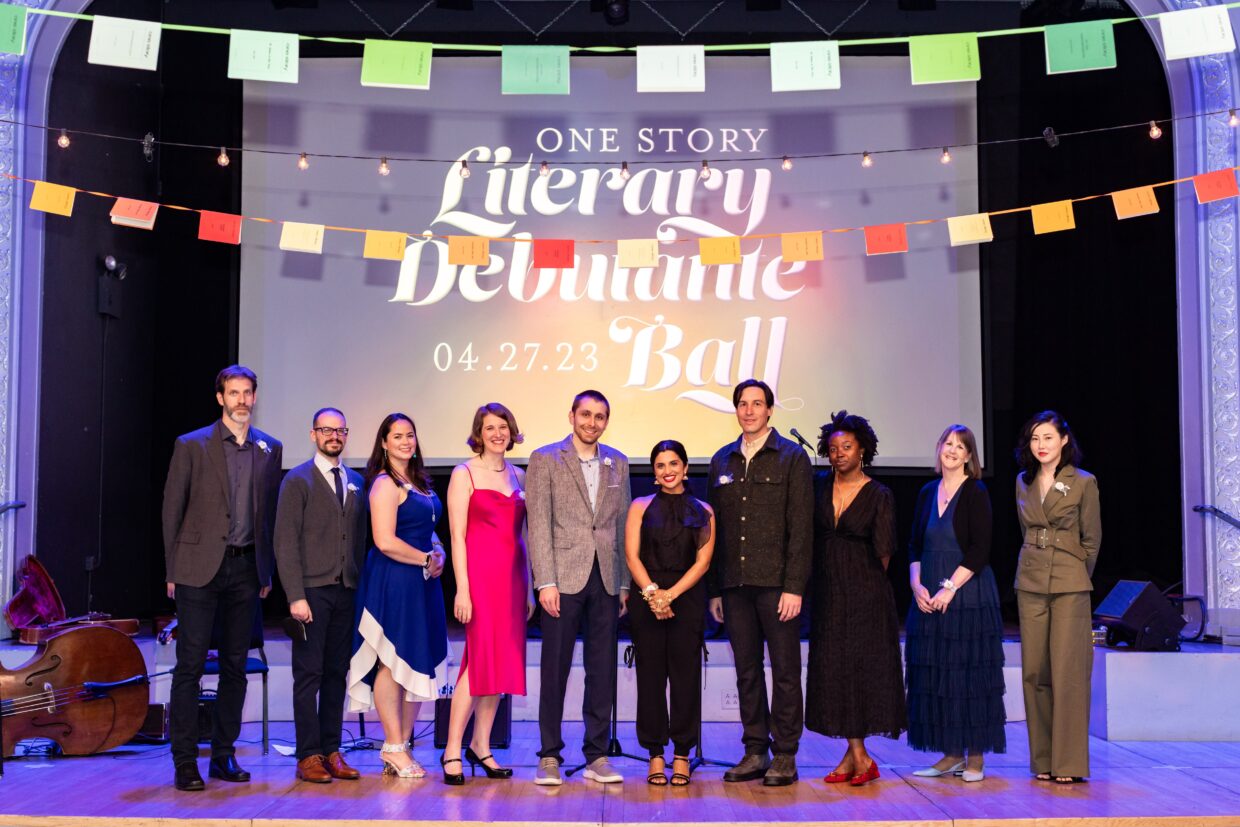
Failure, Patience, and Joy: Tania James on What It Means to Be a Writer
From James’s 2023 Speech at the One Story Debutante Ball
There’s a story I’ve been waiting to tell for fifteen years, and which I’ve never shared publicly, partly because I’ve been waiting for the right audience to receive it. And you, dear writers, friends of writers, and debutantes, you are the ones I’ve been waiting for.
Imagine me at twenty-seven years old. I’ve just sold my first novel. My lovely editor invites me to their office at Midtown to meet her as well as the fleet of people who are responsible for bringing a book into the world. It’s glorious and overwhelming, all the glamorous people, all the galleys that are being heaped into my arms and stuffed in my tote bag before I say goodbye.
I pass through the lobby, and as I’m about to leave through the building’s revolving doors, a woman, coming in, stops me to say that she loves my writing, loves my book. That my writing has meant a great deal to her, so much so that she’s almost moved to tears. As her compliments unfold, it occurs to me that I am holding under my arm a galley of Unaccustomed Earth by Jhumpa Lahiri, and that my hair is in a low bun, as in the author photos of Jhumpa Lahiri, and so I must gently break it to this Jhumpa Lahiri superfan that I am not Jhumpa Lahiri.
I was, however, someone who loved The Interpreter of Maladies, and had read and re-read those stories not only with wonder, but also with an appetite to understand how they were made, how the stories I wrote could produce such intensity of feeling in another. I sought the same instruction from many issues of One Story magazine. On nights out in New York, I never left home without an issue or two.
Those were the days when I, like many young women, carried a species of purse that tucked right up into the armpit and barely fit more than my keys and a tiny map of Manhattan, which I discreetly consulted so as not to look like a total rube. But the most vital thing it contained was that issue of One Story, which kept me company on long train rides back to my rented room in Crown Heights.
At the time, I assumed that the defining feature of being a writer was the publishing of books.
At the time, I assumed that the defining feature of being a writer was the publishing of books. I wasn’t even thinking about the stretches in between, stretches of not yet, or even perhaps never again. I wasn’t thinking about how the longevity of a writer depends less on each individual book or story, and more on how you move through those stretches of nothing special.
Until recently, I was a firm devotee of the butt-in-seat school of writing. Time spent in seat is directly proportional to books written. And then I had two children, and in between having them, I took on my first full-time teaching job. All that time, I wrote hundreds of pages, two different novels born from the sheer desperation to remember the writer I’d always been—decisive, if nothing else. I’m tempted to sugar-coat the experience of failure, to say that it wasn’t as grim or frightening as it must have felt at the time. It’s also true that these failures taught me something valuable, that breaking up with a book can be easy, pleasant even, when that book is giving you nothing back.
But one can almost get too good at breaking up, can almost become an artist of abandonment, looking always ahead for that perfect book you have yet to write. I was approaching such a state of mind when I wrote the first few chapters of my new novel. They were interesting chapters, but what if there was someone sexier around the corner, involving zombies or spies or zombie-spies? At that point, I sent the chapters to my agent, who told me she liked them very much and, I quote:
“If you stop writing this I’ll turn up to handcuff you to your keyboard.”
In case it’s unclear, my agent is a bit of a dom. And this works wonders for me. I printed out those lines of steely encouragement and pinned them to my bulletin board, where they stayed until I finished the book.
Throughout those years of novel-writing, though, I occasionally paused to experiment with my first love, the short story, if only to remind myself of what it’s like to play.
Kids need no such reminder. In a blink, my older son teleports to the state of play, to imagined worlds of wizards and trolls. He’s inside what he calls The Game, which often extends to bedtime, when I’m begging him to go to sleep and stop muttering to himself. His response: But the game never ends.
What I wouldn’t give to be able to drop down into that play state the minute I sit down to write. To enter the room “where there are no wrong answers,” as a student put it to me recently.
What I wouldn’t give to be able to drop down into that play state the minute I sit down to write.
What constitutes play? I know what it’s not. It’s not the fixed ideas I have, particularly in early drafts, about what I must do for the next paragraph or the next scene or the next chapter, what I have to accomplish in a day. Sometimes it arises out of a dare I might give myself, just to shake myself out of the familiar. Like: Write these two paragraphs using only mono-syllabic words. That was a prompt I came across and that I applied to a scene I was writing for Loot. Out of such seemingly restrictive parameters, something surprising arose, and it gave me joy.
By joy I don’t mean happiness. I mean that which banishes my ego, that trains my attention on something so acutely, I forget my ambitions, my very self. That is joy.
Joy requires patience, and I can think of no one more patient than my grandmother, whom I call Ammachi. She is 99. She comes from a long line of Syrian Christian women who wore the same outfit every single day, what’s called chatta and mundu: a plain white blouse over plain white sarong, pleated in the back. How she daily kept that outfit so spotless white, I do not know. It was certainly not for lack of work to do, raising seven children and more grandchildren than I can count. When she was 88 years old, and released from the responsibilities of caring for others, she did something extraordinary: she began to paint.
Her first subjects were orchids. Watercolor orchids over and over, in fuchsia, purple, blue, in all the hues she never wore. When my brother-in-law got her a book of bird photographs, she moved onto parrots and owls and cranes. She painted for hours, and through meals, ignoring my mother who was hollering from the kitchen, begging her to come down and eat something, eat and then go back to painting. But Ammachi stayed upstairs for lengthening stretches, nourished in a new way. All her life she had been tethered to the work of the home. All while the artist within was biding her time until not yet became now.
 Painting by Rachel E. Kurian.
Painting by Rachel E. Kurian.
When I look at her paintings, I think of the note of genuine surprise in her voice as she told me, I didn’t know I could do that. For so many years, she had no idea of what she would channel into being. And neither, dear debutantes and fellow writers, do you. I wish you decades of discovery and joy and play. And my greatest wish for you, for all of us, boils down to this: may the game never end.
___________________________
Speech from The Literary Debutante Ball, honoring Isaac Blum, Rita Chang-Eppig, Rachel King, Talia Lakshmi Kolluri, Gothataone Moeng,David Lawrence Morse, Richard Mirabella, Josh Riedel, Laura Spence-Ash
 Photo by Miria-Sabina Maciagiewicz.
Photo by Miria-Sabina Maciagiewicz.
Tania James
Tania James is the author of four works of fiction, all published by Knopf: The Tusk That Did the Damage, which was a finalist for the International Dylan Thomas Prize and the Financial Times Oppenheimer Award; Aerogrammes and Other Stories, named a Best Book of 2012 by Kirkus Reviews, Library Journal, and The San Francisco Chronicle; and the novel Atlas of Unknowns, which was a New York Times Editor’s Choice and a finalist for the DSC Prize for South Asian Literature. Her short stories have appeared in Freeman’s: The Future of New Writing; Granta; The New Yorker; O, The Oprah Magazine; and One Story, among other places, and featured on Symphony Space Selected Shorts. She has received fellowships from the Macdowell Colony, Ragdale, the Sustainable Arts Foundation, and the Fulbright Program. An associate professor of English in the MFA program at George Mason University, her new novel, Loot, will be published by Knopf Doubleday in June 2023.



















